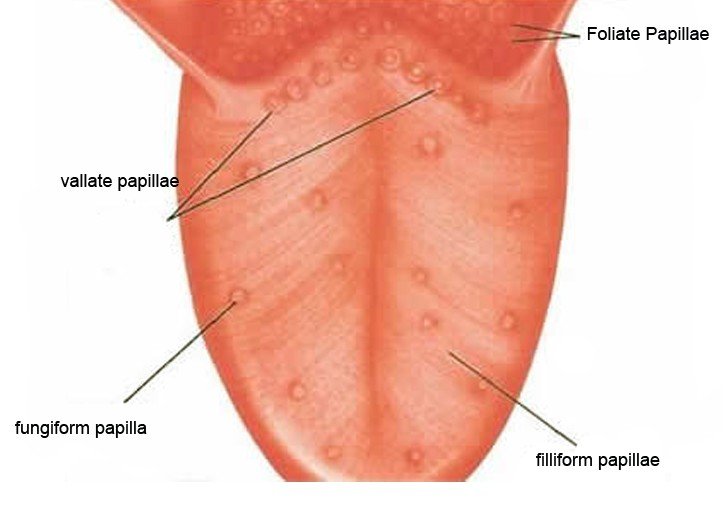Inflamed Taste Bud
Last reviewed by Dr. Raj MD on January 12th, 2022.
The taste bud is an essential tool for our sense of taste. The mere swelling of our taste buds can hinder one to detect the saltiness, sourness, bitterness, sweetness and savories of food and drinks.
These buds are located inside our mouth prominently around the tongue and some on the soft palate, esophagus and epiglottis. The tip of our tongues can detect sweetness. The back our tongues can sense bitterness. Salty foods can be identified at the sides of our tongue while sour taste can be sensed on the lateral side of the tongue.
Our tongue is composed of approximately 2,000 to 8,000 of taste buds. These tiny taste receptors are large in number indeed and can be irritated and look swollen. Inflammation can worsen into complications if not treated immediately. But proper identification of the causes can pave the way of treating the swelling.
Inflamed Taste Bud Causes
There are various causes responsible for the inflammation of our taste buds. It is said that irritants are highly causative for this condition. These include:
- Hot and spicy foods or drinks – consuming these kinds of food can irritate or burn our taste buds.
- Exposure to tobacco smoke – this toxic material can irritate or even aggravate the presence of inflammation. Alcohol and exposure to insecticides are also included in the list.
- Ingestion of foods or drinks that one is allergic with and are too acidic to handle – common foods that people are allergic to and are too acidic are lemons, grapefruits, sauces, seafood and the like.
- Mouth infections – individuals who have acquired mouth ulcers or infections in the first place are very susceptible for inflaming their taste buds. Oral thrush or oral yeast infections are common roots for the inflammation of taste buds.
- Mouth ulcers – these ulcers can be very irritating to our oral membranes and can involve the tongue. Tongue involvement can make one vulnerable for inflaming our taste buds.
- Lack of nutrients – specific nutrients such as vitamin B complex, vitamin C and folate can predispose one for acquiring mouth problems. With the emergence of mouth troubles, the inclusion of the tongue and taste buds may be expected.
- History of oral surgery – specific surgical procedures such as laryngectomy (removal of the entire larynx) can have an outcome of inflamed taste buds.
- Physical injury – injury of the tongue is one of the common causes for starting an inflammation.
Inflamed Taste Bud Treatment
First of all, one should prevent the emergence of this condition. In order to do that, awareness of the possible causes of this condition is a must. We need to prevent by identifying the cause of this condition and avoid the occurrence of an inflamed taste bud. We need to avoid the following:
- Food prepared as too hot and spicy, and food that one is allergic with
- Smoking tobacco
- Ingestion of toxic material such as alcohol, insecticides, poison and irritating solutions
- Trauma to the oral orifice especially the mouth
Application of glycerin to the area of the tongue affected can lighten the swelling. The swelling of our taste buds could have emerged because of underlying causes. It is highly advisable that one should consult the doctor to seek proper care and remedy.
Inflamed Taste Bud Remedies
Home remedies are one of the first aid treatments done for a swollen taste bud. The following treatments presented below are helpful tips in reducing the inflammation of the taste buds:
- Mouth gargles: in a warm glass of water mix some salt (1 teaspoon). Use this gargle thrice a day to relieve the swelling. The warm water facilitates good blood flow that can help in the treatment process.
- Application of ice directly on the affected part of the tongue can relieve the swelling. Do not apply the ice for a long period of time for this can impede the blood circulation. Eating or chewing ice chips can also be of help in the process of recuperation.
- Application of baking soda on the swollen taste buds can reduce the inflammation.
- Using honey as an oral swish can induce healing process.
- The use of garlic, ginger and pepper at the same time can reduce the proposed infection (if there is one) that must have caused the inflammation. Use it three to four times a day to help in the healing process.
